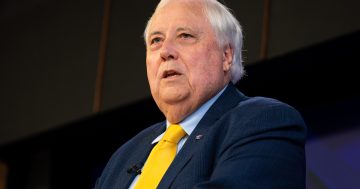Sonia McDonald* says leaders who hide their poor communication skills through the over-use of technology are doomed to fail.
 Does this sound familiar? You receive a text message: HOW R U?
Does this sound familiar? You receive a text message: HOW R U?
Your response out of a range of possibilities: GR8 and NC!
In the latter case, how many text messages do you think might follow — more than, say three to get to know the real truth of the NC mystery, which could have been solved by a phone call?
Text messages are a great check-in tool. However, technology can hide people and reality from the truth and then unresolved matters start and lurk in the shadows.
They create a difference between our true self and what we display to the world.
There is a solution. By understanding about personality types, communication styles and communication techniques as a leader, you will know how to communicate to lead.
A Forbes article by Mike Myatt outlines 10 Communication Secrets of Great Leaders.
It shows that it is simply impossible to become a great leader without being a great communicator.
From our earliest days in the classroom we are trained to focus on enunciation, vocabulary, presence, delivery, grammar, syntax and the like.
In other words, we are taught to focus on ourselves.
It’s the more subtle elements of communication rarely taught in the classroom (the elements that focus on others) which leaders desperately need to learn.
It is the ability to develop a keen external awareness that separates the truly great communicators from those who muddle through.
Examine the world’s greatest leaders and you’ll find them all to be exceptional communicators.
They might talk about their ideas, but they do so in a way which also speaks to your emotions and your aspirations.
Effective communication is an essential component of professional success whether it is at the interpersonal, inter-group, intra-group, organisational, or external level.
The number one thing great communicators have in common is that they possess a heightened sense of situational and contextual awareness.
The message is not about the messenger. It is 100 per cent about meeting the needs and the expectations of those you’re communicating with.
So, how do you know when your skills have matured to the point that you’ve become an excellent communicator?
Consistently use the following principles:
Speak not with a forked tongue.
Get personal.
Get specific.
Focus on the leave-behinds not the take-aways.
Have an open mind.
Shut-up and listen.
Replace ego with empathy.
Read between the lines.
When you speak, know what you’re talking about.
Speak to groups as individuals.
Be prepared to change the message if needed.
Most importantly of all, keep in mind that communication is not about you, your opinions, your positions or your circumstances.
It’s about helping others by meeting their needs, understanding their concerns, and adding value to their world.
Do these things and you’ll drastically reduce the number of communications problems you’ll experience.
Timely, concise and clear communication in a calm manner helps get important information across fast when dealing with a crisis.
It’s much easier to work toward the best outcome with effective communication with team members.
A leader must be able to communicate effectively, control themselves, be creative and adaptable and keep relationship management in mind, especially in a crisis.
In turn, remember that being honest and vulnerable is the key, as we don’t always know the answer and we too can feel uncertain.
However, it is important to be open, positive and admit your feelings.
*Sonia McDonald is the Chief Executive and founder of Brisbane-based LeadershipHQ and McDonald Inc. which build leaders and organisations through strategy, culture, leadership, performance and change. She can be contacted at soniamcdonald.com.au/
This article first appeared on LinkedIn.











